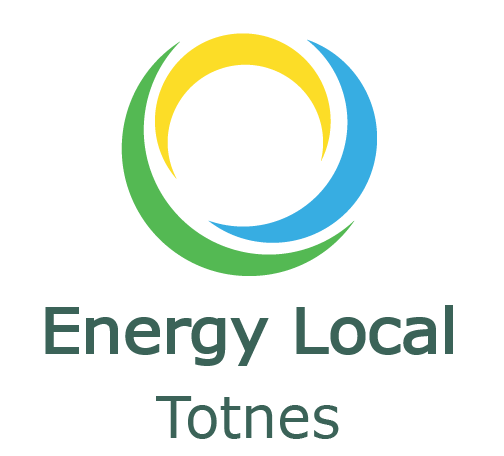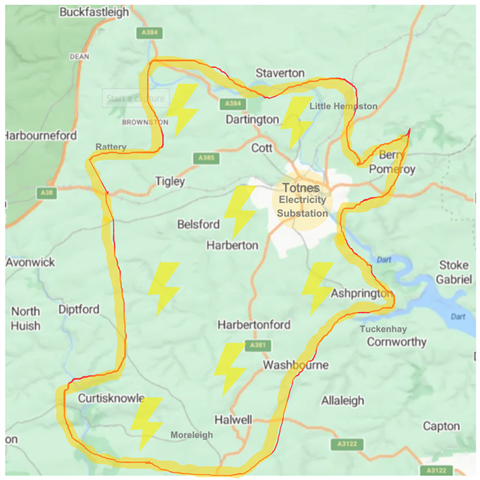

Energy Local Totnes
– Generating and trading electricity in Totnes & the surrounding parishes
The Energy Local Totnes Club is a unique club that presently uses locally generated solar electricity from a number of local people & businesses who have solar pv. As such, the club can continue to grow and expand as more people with solar pv join the club. They are also working with Green Energy UK who are a deep green energy supply company (meaning that they only use actual renewable energy supplies of electricity).
To be able to join you will need to be within the area of the Totnes Electricity substation which is actually a large area (see adjacent map), to have or be willing to have a smart meter installed and able to switch your energy supplier to being Green Energy UK.
Would you like to join the club and buy local renewable energy?
Find out more about becoming a member and register at: https://energylocal.org.uk/totnes
Would you like to sell your local renewable energy?
TRESOC is looking for businesses and organisations who already have solar panels or who have a large roof space where solar panels can be installed so that they can become a club generator. Enquiries to: admin@tresoc.co.uk

Energy Local Clubs are a genius way to enable communities to buy and trade renewable energy locally, without the need for new infrastructure, as it involves the creation of a virtual smart grid.
An Energy Local Club is legally a Cooperative. It is the local group of households who form a Club with a local renewable energy generator(s) to use this power in order to get a better deal for everyone.
Energy Local CIC (Community Interest Company) is the original organisation that is behind this idea and is supporting communities to create their own local clubs. The first Energy Local Club started in a small town called Bethesda, in North Wales back in 2016 and now there are already over a dozen of these clubs operating successfully across the UK .
A new club has just started in the TQ9 area of South Hams, Devon – “Energy Local Totnes” (see below).
The problem with the old energy distribution system
Right now, renewable generators sell their power per unit (KWh) to suppliers, and people living nearby buy that electricity back for two or three times that price. Why? Because there is no way to show that people are using power when local renewables are generating and no means of rewarding matching power use to local generation. This means local clean power generators cannot receive a fair price for the power they generate that reflects its true value.
With the arrival of smart meters and Energy Local Clubs this is changing! This could make thousands of more generators viable, create new green jobs, reduce carbon emissions and tackle fuel poverty.
The Energy Local Club Solution
Energy Local has designed a local market in power via Energy Local Clubs. This enables households to club together to show when they are using local clean power when it is generated. The scheme gives generators a price for the power they produce, that reflects its true value, keeps more money local and reduces household electricity bills.

Why Is An Energy Local Club So Great?
- Fairer electricity prices
- Greater energy self-sufficiency
- Greater energy security
- It keeps money in the local economy
- Communities use more clean, renewable power
- Members are leading the new energy transition together
How does Energy Local work?
- Households and small scale renewable generators as members form an Energy Local Club (ELC) -legally a Coop.
- Households have smart energy meters installed to show when and how much power they were using.
- Members (households and generators) agree a price (“match tariff”) that will be paid to the generator when they match their electricity use to when electricity is generated locally, for example, turning their washing machine on when they know the local Hydro scheme is working at full pelt or the sun is up and bright for solar.
- The Club chooses a partner energy supplier (such as Octopus Energy or Green Energy UK) that sells the extra power they need when there is not enough local electricity generated. The supplier sends each household the bill for their total power use.